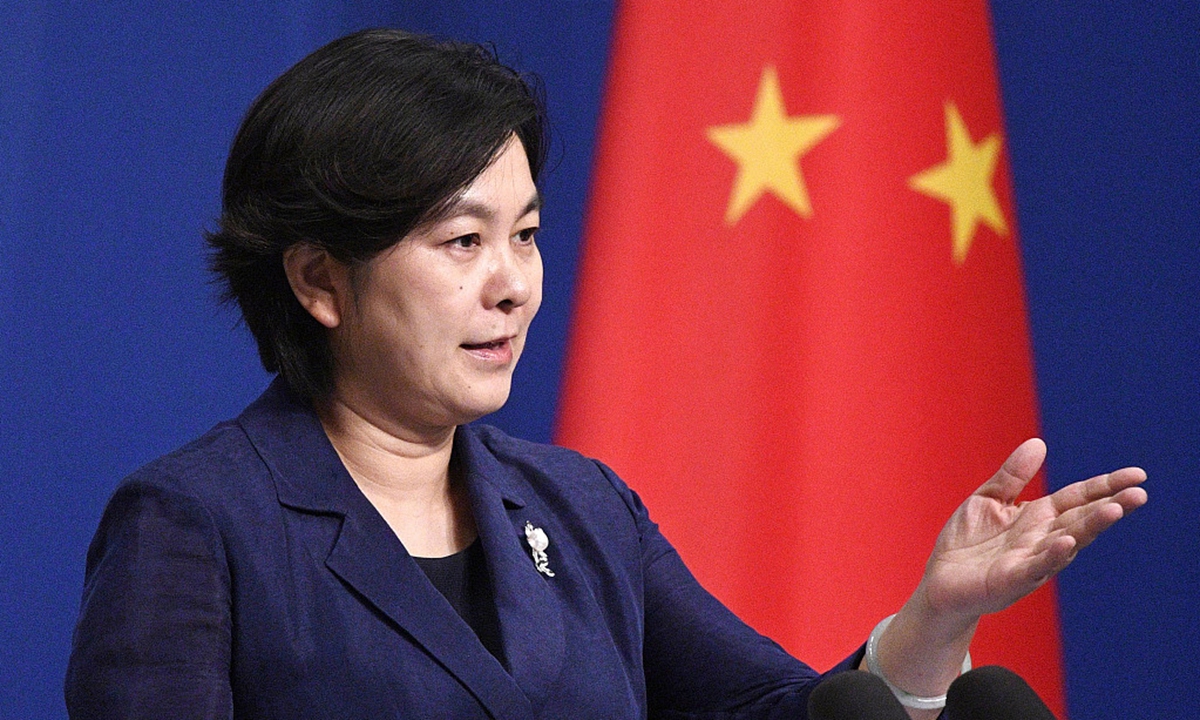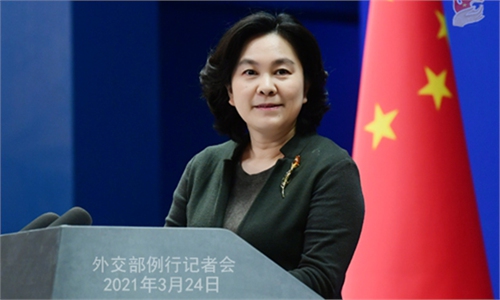
Chinese Foreign Ministry spokesperson Hua Chunying. Photo: VCG
Chinese observers slammed the US as being hypocritical and having double standards in its flaunting advocacy of press freedom, as Chinese journalists stationed in the US suffered from political oppression while Western media continued to hype China's so-called media manipulation.
Hua Chunying, spokesperson of the Chinese Foreign Ministry, on Wednesday released more details of Chinese journalists being badly treated in the US and requested the US to correct the mistake as soon as possible and give Chinese journalists fair and just treatment.
Hua revealed that a journalist of China's Xinhua News Agency who was forced to return to China on May 1 was interrogated in an unusual way by US border agents, and his laptop and other electronic devices were also checked.
Visa extension applications submitted by journalists from Xinhua and the People's Daily in early November 2020 haven't been approved yet. Following US rules, the journalists stopped working in early February, according to Hua.
Such political suppression by the US has put Chinese journalists stationed in the US under great uncertainty, and it has severely affected their work and lives, Hua pointed out.
"Showing double standards and being defiant of journalists is the customary behavior of the US government. It frequently accuses China of not having a free press and suppressing journalists. But facts speak first: It is the US that is interfering with press freedom," Li Haidong, a professor at the Institute of International Relations at China Foreign Affairs University, told the Global Times on Wednesday.
It is a complete distortion of the facts to accuse China of suppressing foreign media when the ministry has always tried to provide facilities for foreign journalists in China and has not yet retaliated against US' measure to slash Chinese journalists' visa terms to a maximum of three months, Hua said.
After the outbreak of COVID-19, "we did what we could to overcome difficulties and help the US journalists who were stationed in China but stranded overseas to return to China," Hua said.
After a recent New York Times report, which accused China of "using its money and power to create an alternative to a global news media dominated by outlets like the BBC and CNN," the Associated Press jumped to a conclusion in a report that China is using fake Twitter accounts to boost the voices of Chinese diplomats and state media on the social media platform, citing a report by the Oxford Internet Institute.
Yet, a close look at the cited report demonstrates that there is no evidence to prove that those accounts were sponsored by the Chinese government.
"Such a conclusion fits its own narrative but doesn't make it the truth," Shen Yi, a professor at the School of International Relations and Public Affairs at Fudan University in Shanghai, told the Global Times on Wednesday.
As the definition of positive public opinion itself is not an objective notion, those researchers and AP journalists could have selected a certain narrative that fits their own stereotypes of China, meaning the report itself was based on a biased understanding of China, Shen said.
When the AP could not prove that those fake accounts were Chinese government-sponsored, its conclusion was merely spreading rumors, Shen noted. Maybe there is a possibility that those Twitter accounts were disguised by some forces to cooperate on the story? Shen asked.

